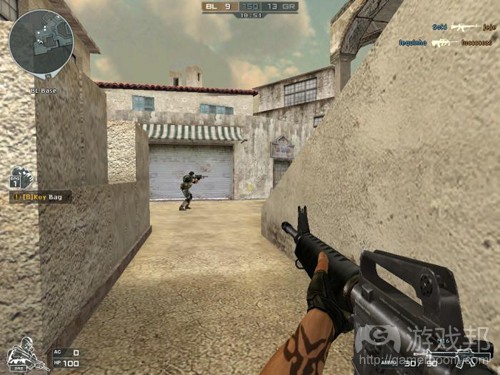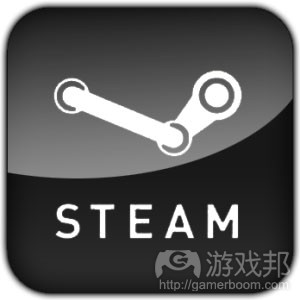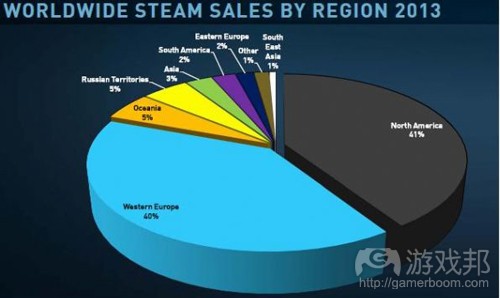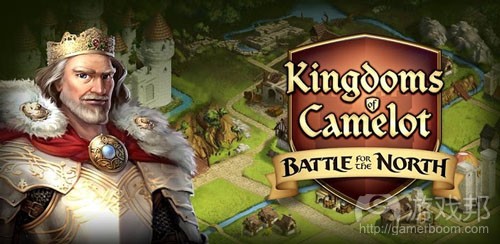每日观察:关注手机和网络游戏市场规模(1.16)
1)投资银行Digi-Capital最新报告预测,手机和网络游戏市场规模将持续扩大(亚洲和欧洲市场尤其如此),预计于2017年该市场收益将达600亿美元,推动整个游戏行业收益突破1000亿美元。手机和网络游戏在整个游戏软件行业收益中将占比60%左右。
2013年欧洲和亚洲市场在全球网络和手机游戏收益中占比80%;去年腾讯和软银等亚洲公司在游戏行业最具价值的十大并购交易中占据了9项交易,这些交易促使2013年游戏行业并购交易额达到56亿美元。
Digi-Capital报道还指出,2013年平均每笔电子游戏行业投资交易额增长至600万美元,几乎比2012年的平均交易额增长15%。
2)据venturebeat报道,市场调研公司SuperData最近报告指出,中国腾讯旗下射击游戏《穿越火线》是2013年收益排名第一的免费模式游戏,《英雄联盟》则位居第二。
与此同时,由于手机和免费游戏的发展,美国数字游戏收益达到118亿美元,增幅达11%。
中国十大免费增值游戏在2013年收益高达36亿美元,由SmileGate开发,腾讯发行的《穿越火线》收益则是9.57亿美元,而由Riot Games开发的《英雄联盟》收益则是6.24亿美元。
SuperData指出,腾讯年收益达到15.8亿美元,超过了收益达8亿美元的Nexon(有3款游戏进入前十大热门免费增值游戏之列)。
Wargaming开发的《坦克世界》排名第四,年收益为3.75亿美元,NCSoft已经面世14年的《Lineage I》收益也达到了2.57亿美元。
《魔兽世界》在2013年微交易收益为2.13亿美元,EA的《星球大战:旧共和国》额外收益为1.39亿美元。2013年12月美国数字游戏销售额达12亿美元,比11月份的8.62亿美元增长36%。
2013年美国免费在线游戏收益达到28.9亿美元,美国订阅游戏收益为11.2亿美元,比2012年下降19%;美国手机游戏市场规模为30.6亿美元,比原来的23.9亿美元增长28%。12月份手机游戏收益为3.17亿美元,同比11月份增长16%。
由于社交游戏玩家转向移动平台,社交游戏市场收益为18.1亿美元,缩水21%;PC和主机市场的可下载内容收益为28.7亿美元,比一年前增长13%。12月份DLC销售额为3.79亿美元,比一年前增长71%。
3)据gamasutra报道,Valve公司在日前的Steam Dev Days大会上宣布Steam目前活跃用户超过7500万,超过去年10月份时的6500万,并鼓励开发者向Steam Machines设备投放例如音乐播放器、视频服务等非游戏软件。
4)据gamasutra报道,Valve Software最近发布的2013年收益数据显示,从Steam全球收益情况来看,欧洲和北美仍是通过数字渠道购买PC游戏的主流市场,分别占比40%和41%。
而俄罗斯和巴西年增长率则是128%和75%,东欧和南美则是有待开发的PC游戏市场。
5)据venturebeat报道,苹果最近服从了美国联邦贸易委员会的裁决,同意向那些因年幼子女滥刷信用卡购买应用内置道具的家长退款,将向这些家长至少退回3250万美元,并向那些受此影响的消费者退知退款消息。
这些儿童无意中购买的IAP内容单项收费从99美分至上百美元,曾有一名家长报告称自己的孩子在一款游戏中就花了2600美元购买IAP。
6)据venturebeat报道,手机社交游戏发行商Kabam日前聘请了三名新高管,其中包括平台高级副总裁Paxton Cooper(40岁,此前曾任Mozilla产品管理副总裁),人力资源高级副总裁Doug Inamine(48岁,之前曾是Xyratex的HR主管),以及Kabam Studios营销副总裁Jordan Edelstein(41岁,曾在EA旗下的Maxis公司担任全球营销副总裁)。
Kabam在2013年收益超过3.25亿美元,已经连续两年实现盈利,旗下两款游戏《Kingdoms of Camelot: Battle for the North》以及《The Hobbit: Kingdoms of Middle-earth》均进入2013年iOS收益榜单前十名。
有4款Kabam游戏在4年时间中收益分别超过1亿美元,Kabam游戏玩家数量超过1.9亿。(本文为游戏邦/gamerboom.com编译,拒绝任何不保留版权的转载,如需转载请联系:游戏邦)
1)Mobile and online games predicted to be 60% of the market by 2017
By Alex Wawro
A new report from investment bank Digi-Capital predicts that mobile and online games will continue to rapidly expand and flourish, especially in Asian and European markets, accounting for an expected $60 billion in revenue by 2017.
That’s expected to push revenue for the entire games industry past $100 billion by 2017, at which point mobile and online games are predicted to account for roughly 60 percent of the global market for game software.
Europe and especially Asia proved to be hotbeds of growth for the emerging market, accounting for 80 percent of the global revenue from online and mobile games in 2013.
Asian companies like Tencent and SoftBank paid for nine of the top ten most valuable mergers and acquisitions in the games industry last year. Digi-Capital claims those deals helped drive the total value of mergers & acquisitions in the game market to a record high of over $5.6 billion in 2013.
The report, an excerpted version of Digi-Capital’s Global Games Investment Review 2014, also notes that video game investments continue to grow, though investors focus primarily on mobile games and gamification technology — the average game industry investment deal grew to $6 million, roughly 15 percent more than the average deal in 2012.
Digi-Capital is an investment bank that specializes in games, media and technology across Asia, Europe and North America. You can read an executive summary of the company’s most recent Global Games Investment Review on its website.(source:gamasutra)
2)China’s CrossFire shooter is bigger than League of Legends and World of Tanks
Dean Takahashi
China’s Tencent scored big with free-to-play games in 2013, with its CrossFire shooter holding the No. 1 position of the year and its League of Legends holding the No. 2 spot in revenues, according to market researcher SuperData Research on the communist nation’s multibillion-dollar PC game market.
Meanwhile, in the U.S., digital games grew 11 percent in revenues to $11.8 billion thanks to the rise of mobile and free-to-play games.
China’s top 10 free-to-play games, where players play for free and pay real money for virtual goods, generated $3.6 billion in revenue in 2013. CrossFire, made by SmileGate and published by Tencent, made $957 million in revenue, while League of Legends (developer Riot Games is now a Tencent subsidiary) came in at $624 million.
SuperData chief exec Joost van Dreunen said in a statement that “Tencent continues its dominance in the space with CrossFire and League of Legends, good for a combined annual gross of $1.58 billion, and staying ahead of Nexon, which holds three of the top 10 slots with a combined worth of well over $800 million.”
Wargaming came in at No. 4 with World of Tanks, which generated annual revenues of $372 million. NCSoft’s Lineage I, now in its 14th year, generated $257 million in revenue.
“Despite its chronic subscriber loss, World of Warcraft managed to generate $213 million in micro-transaction sales in 2013,” he said, in addition to its subscriber revenue.
Electronic Arts’ Star Wars: The Old Republic earned $139 million in additional revenues in 2013. In December, U.S. digital game sales hit $1.2 billion, up 36 percent from $862 million.
In the U.S., free-to-play online games grew 45 percent from $1.99 billion to $2.89 billion in 2013. Subscription revenues were $1.12 billion, down 19 percent from 2012. The U.S. mobile game market was $3.06 billion in 2013, up 28 percent from $2.39 billion. In December, mobile games were $317 million in December, up 16 percent from November.
The social games segment shrank 21 percent to $1.81 billion as social gamers shifted over to mobile. And the downloadable content market for bot PC and console games was $2.87 billion, up 13 percent from a year earlier. December DLC sales were $379 million, up 71 percent from a year ago.(source:venturebeat)
3)Steam now has over 75 million active accounts
By Alex Wawro
Newsbrief: Steam now has over 75 million active users, a significant jump from the 65 million Valve reported last October. The news was shared with attendees of the company’s inaugural Steam Dev Days conference today.
While Valve invited few to no card-carrying reporters to the conference — presumably to help foster the “relaxed, off-the-record environment” advertised — attendees seem to be posting significant excerpts of the various talks to Twitter using the hashtag #SteamDevDays.
That’s how we know that Valve is reporting more than 75 million active Steam accounts, and is encouraging developers to bring non-gaming software — music players, video streamers, etc. — to Steam Machines.
We also know that each of the roughly 2,000 attendees will receive a free Steam Machine during the conference, courtesy of Valve. (source:gamasutra)
4)A geographical breakdown of Steam sales, in charts
By Alex Wawro
Russia and Brazil are far and away the fastest-growing markets for Steam software sales, according to 2013 sales revenue data from Valve Software.
The data, sent out by Valve during its Steam Dev Days event, suggests that Europe and North America still dominate the market when it comes to buying PC games digitally, accounting for a combined 81 percent (40 and 41 percent, respectively) of Steam’s global revenue.
If you look at the data for signs of emerging markets, however, Steam saw the biggest growth in revenue from users in Russia and Brazil. With year-over-year growth rates of 128 percent and 75 percent (respectively), it seems like Eastern Europe and South America might be underserved up-and-coming markets for PC game developers. (source:gamasutra)
5)Apple’s shelling out $32.5 million to parents burned by their kids’ in-app spending sprees
Nate Ralph
Parents whose children racked up hundreds of dollars in in-app purchases on Apple devices are getting their money back.
Apple has entered into a consent decree with the Federal Trade Commission, agreeing to refund the parents of children who racked up big charges in-app purchases without their explicit consent. The company is required to pay out a minimum of $32.5 million and notify affected consumers that refunds are available. Any funds Apple doesn’t dole out within 12 months must be remitted to the FTC.
If this all sounds a bit, well, repetitive, Apple agrees. Last year, the company settled a lawsuit over this very issue, offering iTunes credits and cash refunds to parents who sued over exorbitant in-app purchases, to be paid out this year. In a memo addressed to Apple employees and acquired by Re/Code, Apple CEO Tim Cook remarks that the FTC’s involvement “smacked of double jeopardy.” Apple chose to sign the consent decree and avoid a second protracted legal battle, as the FTC’s proposal “does not require [Apple] to do anything we weren’t already going to do.”
At issue is the ease with which children could dodge that parental consent requirement: After entering your password to make a purchase on an iOS device, there is a 15 minute window to make additional purchases without additional verification. Children were allegedly using this opportunity to rack up virtual goods in the games they were playing. The in-app charges on these apps range from as little as 99 cents to a hundred dollars — in one case, a parent reported that their child spent $2,600 on in-app purchases in a single game.(source:venturebeat)
6)Mobile social game publisher Kabam beefs up with new hires
Dean Takahashi
Kabam, a mobile social game publisher that is on its path to an initial public offering, has hired three new executives as it continues its global expansion.
The new hires include Paxton Cooper, senior vice president for platform; Doug Inamine, senior vice president of human resources, and Jordan Edelstein, vice president of marketing for Kabam Studios.
“Paxton, Doug, and Jordan are some of the best people in the tech and games world, and we’re proud to welcome them to Kabam,” said Kent Wakeford, Kabam’s chief operating officer.
“During 2014, we plan to accelerate Kabam’s revenue growth and continue to expand into new global markets. These three executives join our already-strong management team and will play a central role in fueling Kabam’s growth.”
Kabam had revenue of more than $325 million in 2013 and it has been profitable for two years, the company said. Two of its games, Kingdoms of Camelot: Battle for the North and The Hobbit: Kingdoms of Middle-earth, were among the 10 top-grossing apps for the iOS market in 2013. Kingdoms of Camelot was on that list for the second year in a row.
Four Kabam games have grossed more than $100 million each in four years. Altogether, more than 190 million people play Kabam games.
Cooper, 40, was most recently vice president of product management at Mozilla. At Kabam, he will be responsible for growing the company’s game platform. Inamine, 48, was previously head of HR at Xyratex. He’ll handle HR for more than 775 Kabam employees.
And Edelstein, 41, joins Kabam after a decade-long career at Electronic Arts, where he was most recently the global vice president of marketing for the company’s Maxis division. At Kabam, he will be responsible for customer acquisition and game marketing for Kabam Studios, the company’s in-house developer of first-party titles.(source:venturebeat)













































 闽公网安备35020302001549号
闽公网安备35020302001549号